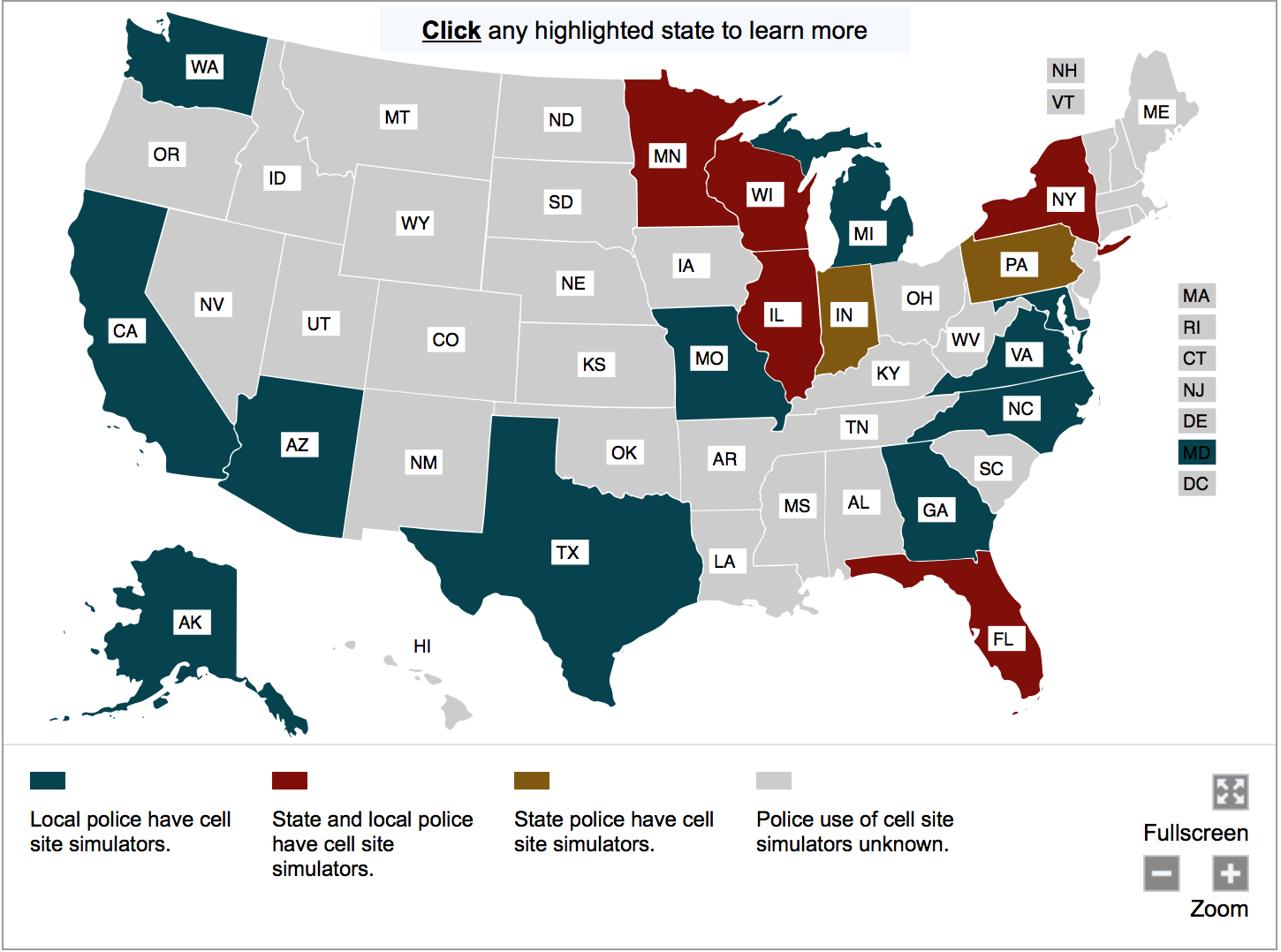In the midst of the Apple vs. FBI clash about releasing access to cellphone information, Delaware has been hit with its own phone-privacy (or lack thereof) bombshell: According to a story in The News Journal, the state police department possesses top-secret portable cell-tracking systems known as Stingrays.
Chris Williams, Delaware Agenda publisher (and Technical.ly Delaware contributor) wrote in his newsletter a brief explanation of how they work:
Your cell phone is often connected to multiple towers, and uses the one with the most powerful signal as the main tower. As you move, such as while in a car, the most powerful tower obviously changes. When that happens, a ‘handoff’ occurs, and your phone starts using the new tower. Also, some legitimate towers do not use encryption, and can instruct your phone to turn off encryption. So for a Stingray to work, all is has to do is A) be powerful, B) fraudulently identify itself, and C) turn off encryption.
Because they pretend to be a cell phone tower, Stingrays pull in information about everyone in the vicinity, not just the intended target.
Stingrays, generally located in police vehicles when in use, apparently collect telephone numbers, call history, text and location data, payment records and the numbers of incoming and outgoing calls and texts, but not the content of calls and texts.
It’s a story Technical.ly has covered extensively in Baltimore, which has been a hotbed of Stingray-related litigation.
The ACLU has found that at least 23 states have Stingrays, according to the paper. This map from Newsweek shows where, as of September 2014, known Stingrays have been in use. Note that Delaware is not highlighted.

Here’s a map of Stingray states, as of September 2014. Note: Clicking on a state won’t work here. (Image from Newsweek)
The News Journal wrote about several Freedom of Information Act (FOIA) requests it made about Stingray use in Delaware that were mostly denied, save for two documents.
One proved Stingrays are actually in state authorities’ hands: Records show the state paid Stingray producer Harris Corp. $949,704 between 2008 and 2014 for hardware, upgrades and training.
The other document was correspondence from 2012 between the Delaware State Police and the FBI, which said that no one outside of law enforcement could know any information about Stingrays. And, if information about a Stingray could be brought up in court, the police needed to make sure the case got dismissed.
That’s been the M.O. in Baltimore, according to a Technical.ly story from December 2014:
Authorities would even apparently rather lose in court than talk about the cell phone tracking. In a separate recent case, The Baltimore Sun reports that prosecutors withdrew important evidence that would have helped them win a robbery case because it would have required them to talk about the technology. When a judge asked police detective John L. Haley why he couldn’t talk about it, Haley cited a nondisclosure agreement with the FBI.
While warrants are necessary for Stingray use, The News Journal FOIA’d any warrants, but the state police said there were none.
Before you go...
Please consider supporting Technical.ly to keep our independent journalism strong. Unlike most business-focused media outlets, we don’t have a paywall. Instead, we count on your personal and organizational support.
Join our growing Slack community
Join 5,000 tech professionals and entrepreneurs in our community Slack today!

The person charged in the UnitedHealthcare CEO shooting had a ton of tech connections

From rejection to innovation: How I built a tool to beat AI hiring algorithms at their own game

The looming TikTok ban doesn’t strike financial fear into the hearts of creators — it’s community they’re worried about

